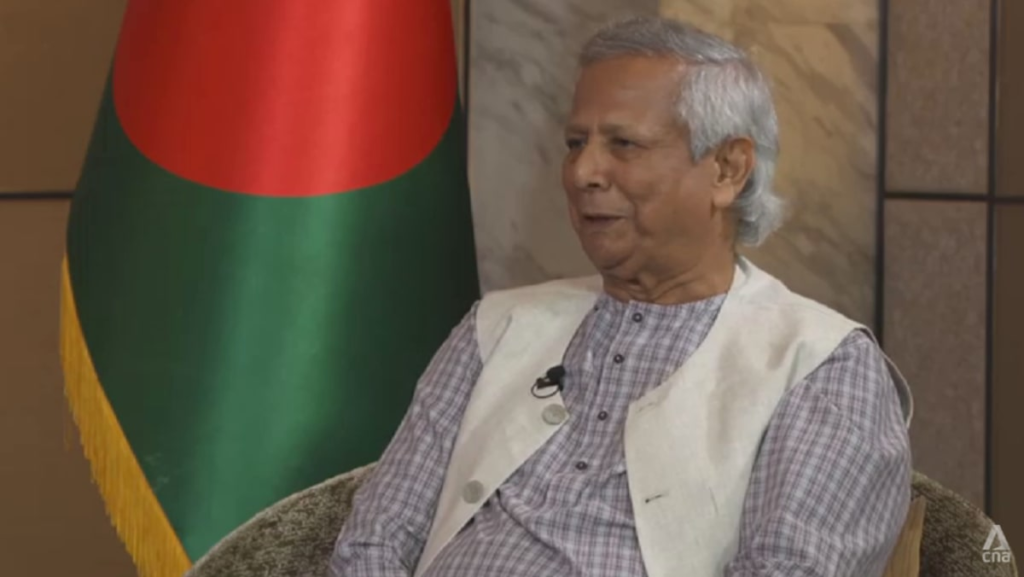Ties between the two countries have been strained since, as Bangladesh seeks her return. India has not responded to the extradition requests.
Dhaka also urged New Delhi to stop Hasina from making “false and fabricated” statements after she urged supporters online to resist the interim government.
“(Modi) explained that (India) could not control social media,” Yunus told CNA, referring to Indian Prime Minister Narendra Modi.
“We are not going to kind of get into a battle trying to get Hasina out of India. We said, ‘You can keep her. Our trial will go on’,” he added.
“But in the meantime, she should not be given any chance to destabilise Bangladesh. She still has many followers within Bangladesh – they will follow the same thing that they did before to destabilise the whole country.”
DIPLOMATIC SHIFT
Under Hasina, Bangladesh enjoyed close strategic and economic ties with India.
But under the new interim government, observers said there has been a recalibration in Dhaka’s regional alliances away from New Delhi.
Yunus made a landmark visit to Beijing in March and met with Chinese President Xi Jinping, touting Bangladesh’s strategic location as China’s gateway to South Asia.
He has defended his government’s approach, saying decisions are economically driven and that Bangladesh is willing to work with anyone with an interest in investing in the country.
“We have good relationships with Pakistan and China, and we would also like to have a good relationship with India,” he said.
“(This) is about investment opportunity, not something special to China. This is also offered to India, to anybody who would like to take advantage of it. It’s just a fair game in business.”
EXIT FROM POLITICS
The Nobel peace laureate, who was thrust into the role following the revolution, said he was unwilling to take on the responsibility at first as de facto prime minister.
“(The student leaders) pleaded with me that so much blood has been shed … That kind of hit me in a way … After (they) made so many sacrifices, I should do something on my own too. So, I accepted the job,” he recalled.
The 85-year-old said he does not plan to stay on in government after the elections.
Amid his decision to step back from politics, Yunus said he hopes his leadership leaves a lasting legacy.
“I would hope that from now on, Bangladesh will be on the right track, it will not be derailed again,” he said.
“Our voters couldn’t vote for the last 15 years. Young people should be pouring in their votes and their aspirations into the ballot boxes. I would hope that there could be a good government, and it will follow the democratic principles.”
Yunus spoke to CNA in Kuala Lumpur during his three-day official visit to the Malaysian capital, where he met Malaysian Prime Minister Anwar Ibrahim.
Malaysia and Bangladesh signed several Memorandums of Understanding (MOUs) during his trip, covering defence cooperation, education, and collaboration in supply and infrastructure of liquefied natural gas (LNG), petroleum products, and related facilities.
Read the full article here

